Nós
comumente pensamos – porque, fala sério, é mais fácil pensar desta maneira –
que as pessoas podem ser colocadas em categorias. Assim, achamos que atletas
não gostam de arte e que aqueles que trabalham com a cabeça não gostam de
cuidar da aparência. Tudo isso é bem diferente da verdade, e a convivência –
não exatamente pacífica – de interesses opostos na vida de um jovem é o tema
principal de “Conflito de Duas Almas”.
We usually think – because, come on, it's easier to
think this way – that people can be put in little stereotypical jars. This
being, we think that athletes don't like arts and the ones who use their brains
are not so good at physical activities. This is actually far from the truth,
and the convivence – not exactly pacific – of opposing interests in a young
man's life is the main theme in “Golden
Boy”.
Joe
Bonaparte (William Holden) é um grande boxeador. Ele aprendeu o esporte em
academias e nas ruas, longe de seu pai, e agora é uma promessa do esporte. Por
que o pai de Joe não pode saber que o filho luta boxe? Porque o velho homem
quer que o filho se torne um grande violinista – e este não é um sonho
impossível, porque Joe também é muito bom com o violino.
Joe Bonaparte (William Holden) is a great boxer. He
learned boxing in gyms and at the street, without his father's knowledge, and
now is a promise of the sport. Why can't his father know? Because the old man's
hope is to see his son becoming a great violinist – and this isn't an
impossible dream, because Joe is also very good with the violin.
Mas Joe
terá de tomar uma decisão – ou deixar que alguém a tome por ele. O entusiasmo
da família e dos amigos quando ele toca violino o fazem ter motivação para
praticar mais e mais. Por outro lado, se ele for um bom boxeador e ganhar
várias partidas, ele ajudará seu empresário, Tom Broody (Adolphe Menjou), a se
divorciar e se casar com Lorna Moon (Barbara Stanwyck).
But Joe has to make up his mind – or let someone else
do it for him. His family's and friends' enthusiasm when he plays the violin
make him practice more and more. On the other hand, if he is a good boxer who
wins several matches, he'll help his manager, Tom Broody (Adolphe Menjou) to
settle his divorce and marry his sweetheart Lorna Moon (Barbara Stanwyck).
Como fã
de cinema clássico e de William Holden, você deve saber que ele só foi escalado
para ser o protagonista aqui – no primeiro filme em que ele recebeu crédito –
porque Barbara Stanwyck insistiu. Holden não está mal, mas não podemos negar
que uma gama maior de emoções é exigida de Stanwyck.
As a fan of classic film and William Holden, you may
know that he was cast as the lead here – the first film in which he was
credited - by Stanwyck's insistence. Holden is not bad, but we can't deny that
a lot more acting range is demanded from Stanwyck.
Holden
é convincente como violinista, mas as tomadas longas na luta final não nos
deixam vê-lo muito bem, e alguém pode até pensar que era um dublê que estava no
ringue. A luta não é nem de perto tão emocionante quanto a melhor luta já
filmada para um longa-metragem, em “Corpo e Alma” (1947). Uma curiosidade: John
Garfield, o boxeador em “Corpo e Alma”, estava entre as opções para
protagonizar “Conflito de Duas Almas”.
Holden is convincing as a violinist, but the long
shots in the final fight don't let us see him very well, and one may even think
it was a double in the rink. The fight is nowhere nearly as exciting as the
best boxing match ever shot for a film, in “Body and Soul” (1947). One curious
trivia: John Garfield, the boxer in “Body and Soul”, was considered briefly for
the role in “Golden Boy”.
Eu
fiquei animada ao descobrir que “Conflito de Duas Almas” foi dirigido por
Rouben Mamoulian, um dos mais menosprezados diretores de todos os tempos, na
minha opinião. Ele esbanjou criatividade na transição da era muda para a
falada, quando fez ótimos filmes com pequenas experiências sonoras, como
“Aplausos” (1929), “Ruas da Cidade” (1931) e “Ama-me esta noite” (1932), e
também contou a história de uma personagem feminina forte em “Rainha Cristina”(1933).
I was excited to discover that “Golden Boy” was directed
by Rouben Mamoulian, one of the most underrated directors ever, in my opinion.
He was his most creative in the transition from the silent era to the talkies,
when he made great movies with little sound experiences, like “Applause”
(1929), “City Streets” (1931) and “Love Me Tonight” (1932), and also told the
story of a fierce female character in “Queen Christina” (1933).
O torpe
e vil código Hays tolheu sua criatividade, e em “Conflito de Duas Almas” ele se
mostra seguro em relação ao seu trabalho, mas sem toques de mágica. O que é
interessante sobre Mamoulian aqui é que ele havia sido escalado para dirigir “A
Mulher faz o Homem” para a Columbia, enquanto Frank Capra se encarregaria de
“Conflito de Duas Almas”. Foi Capra quem pediu para trocar de projeto com
Mamoulian.
The pure evil Production Code cut his creativity
short, and in “Golden Boy” he is sure of his job, but not exactly magical. What
is interesting about Mamoulian here is that he was supposed to direct “Mr Smith
Goes to Washington” for Columbia studios, while Frank Capra was supposed to
direct “Golden Boy”. Capra was the one who asked to change projects with
Mamoulian.
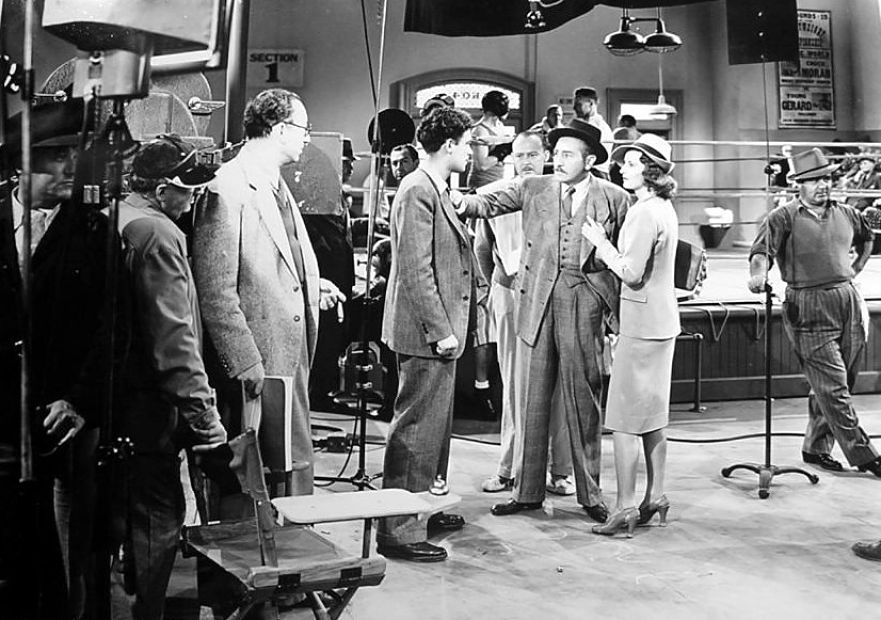 |
| Mamoulian is on the left, with a light suit and wearing glasses |
“Conflito
de Duas Almas” é um bom filme, talvez um pouco longo demais e previsível. Mas,
para Holden, era apenas o começo. O melhor ainda estava por vir...
“Golden Boy” is
a nice movie, maybe a little too long and predictable. But, for Holden, it was
just the beginning. The best was yet to come...
This is my contribution to the 2nd Golden Boy Blogathon, hosted by Virginie at The Wonderful World of Cinema.

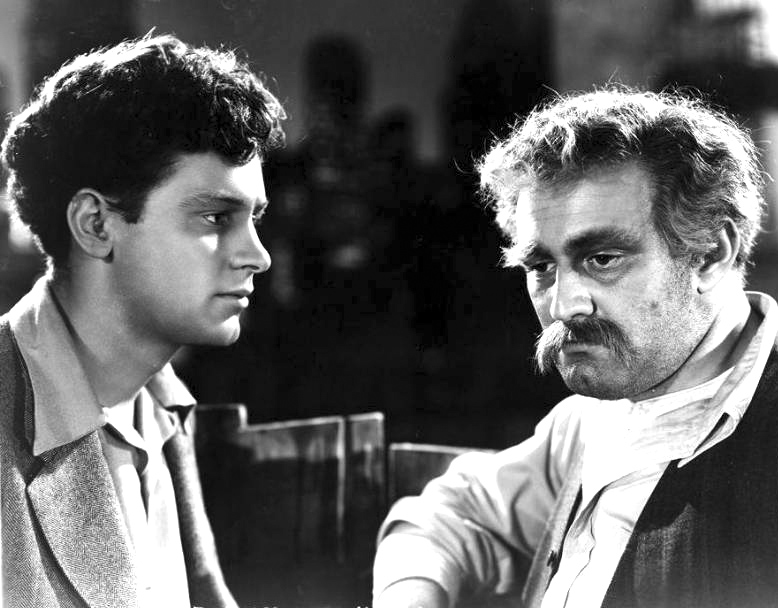


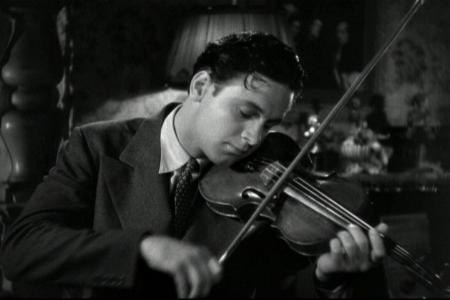

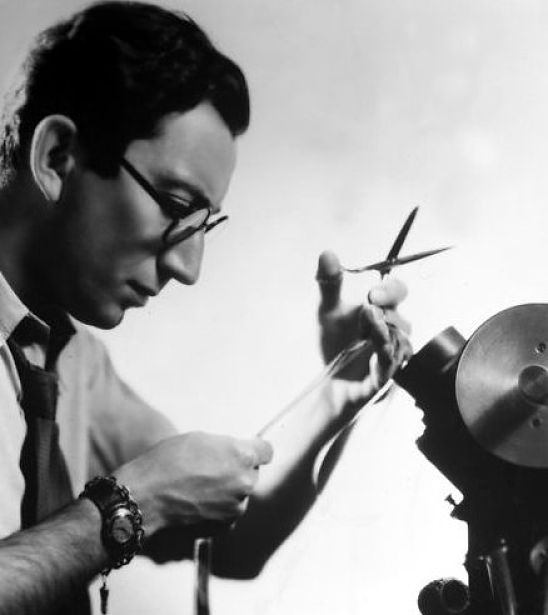

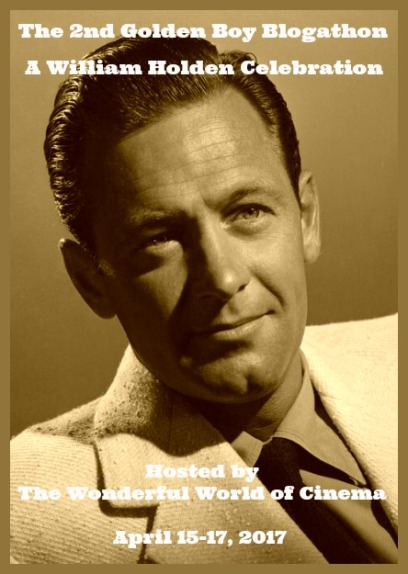
6 comments:
I can see Holden as a convincing violinist before I can see him as a convincing boxer. But then I have yet to see this movie, so who knows...?
So young! It took a while for the mature actor to emerge. As movie fans we are fortunate that the young William Holden had the support of Barbara Stanwyck, and I am sure others, at this stage of his career.
Wow...he is so young. Can't imagine him like that. I only know the older William Holden and as a cowboy.
Have a lovely weekend and a Happy Easter (if you celebrate).
Catherine
I sooo love this film! And I'm obviously forever grateful to Barbara Stanwyck ;)
As always I immensely enjoyed reading your review! It was a great, clever one and I really loved your introduction about the stereotypes.
And isn't he adorable on this pic where he reads the script? :O
Thanks so much for joining the blogathon!
I've wanted to see this for a while, but it just hasn't come my way yet. Holden as a boxer AND a violinist? Such a cool combo, and add Barbara Stanwyck into the mix and you know I will enjoy. I didn't realize she was responsible for him getting the part, though -- that's a cool tidbit!
Great post. William Holden is so young in this one. Thank you for submitting to The Classic Movie Marathon Link Party. I appreciate it.
Post a Comment